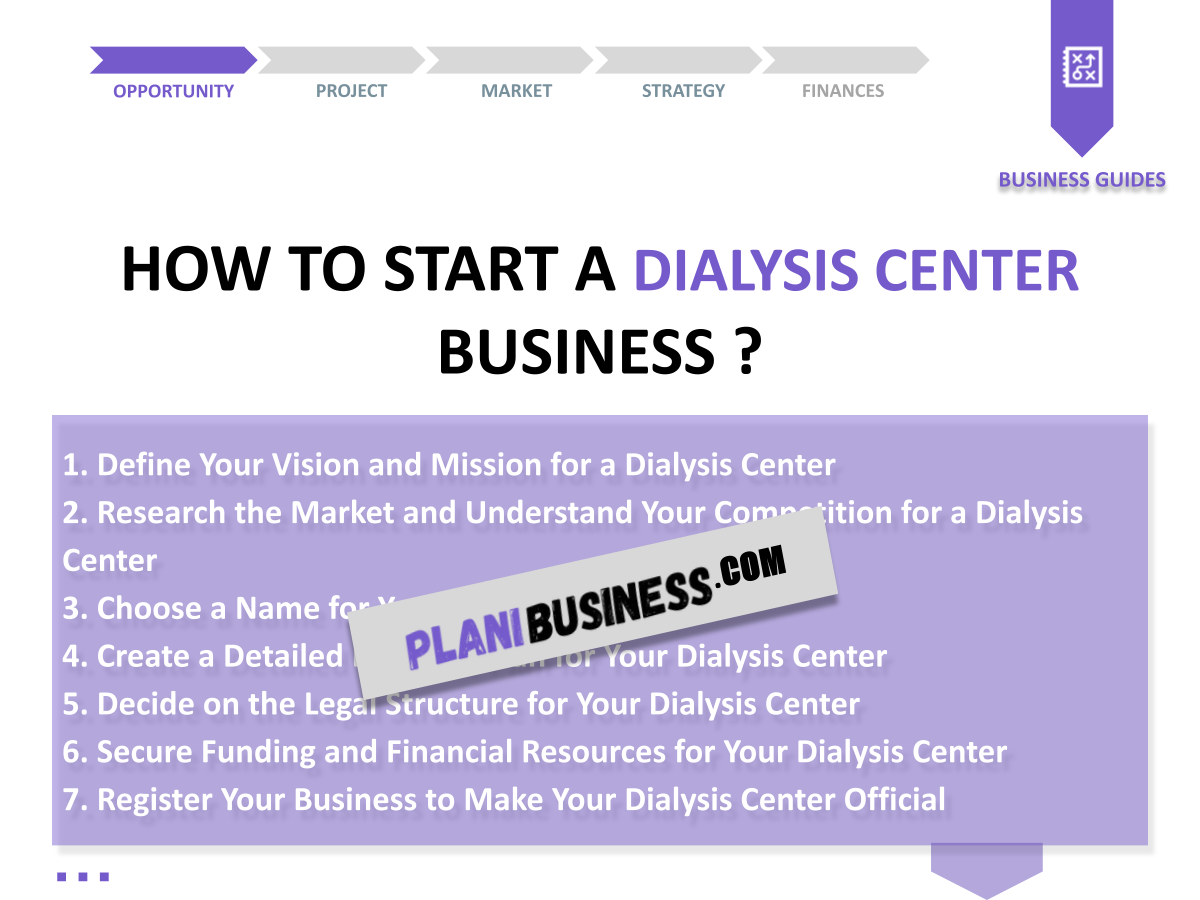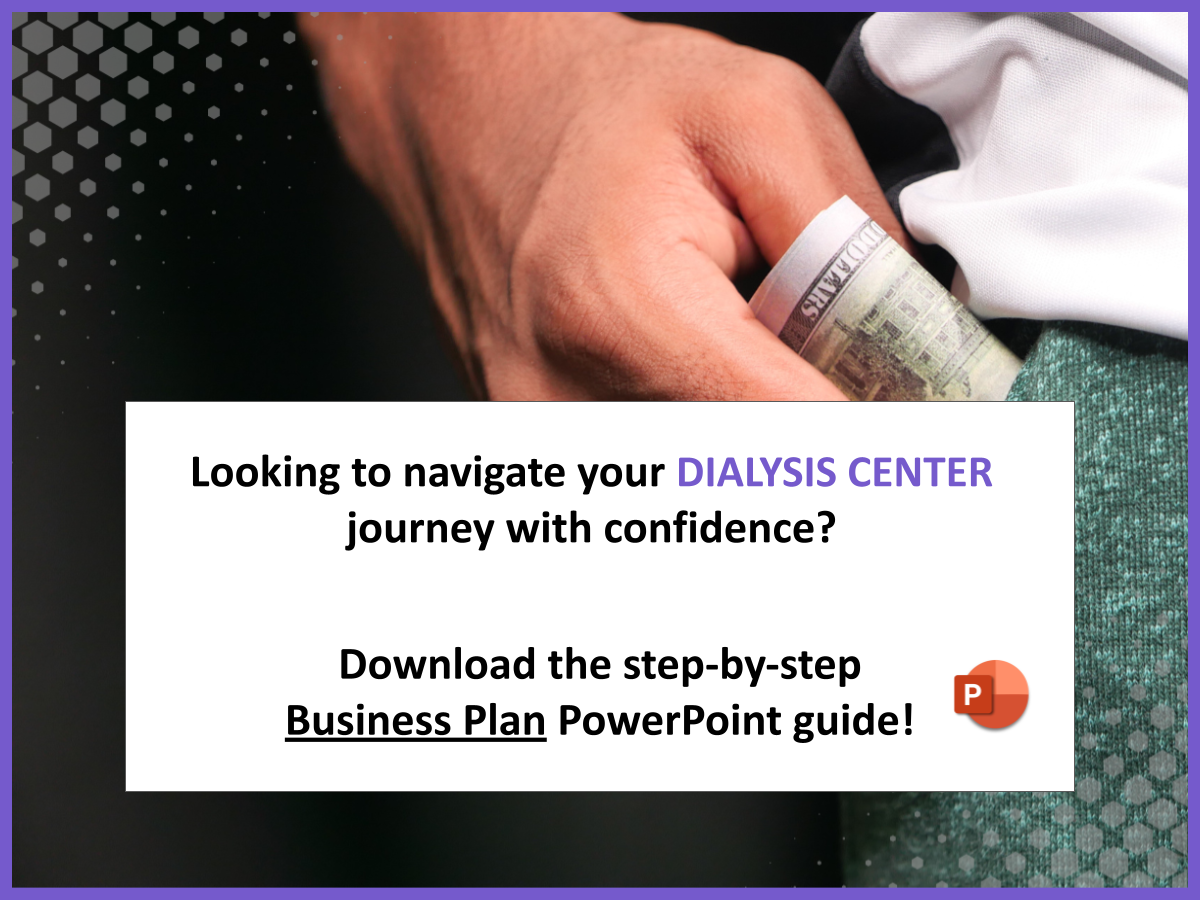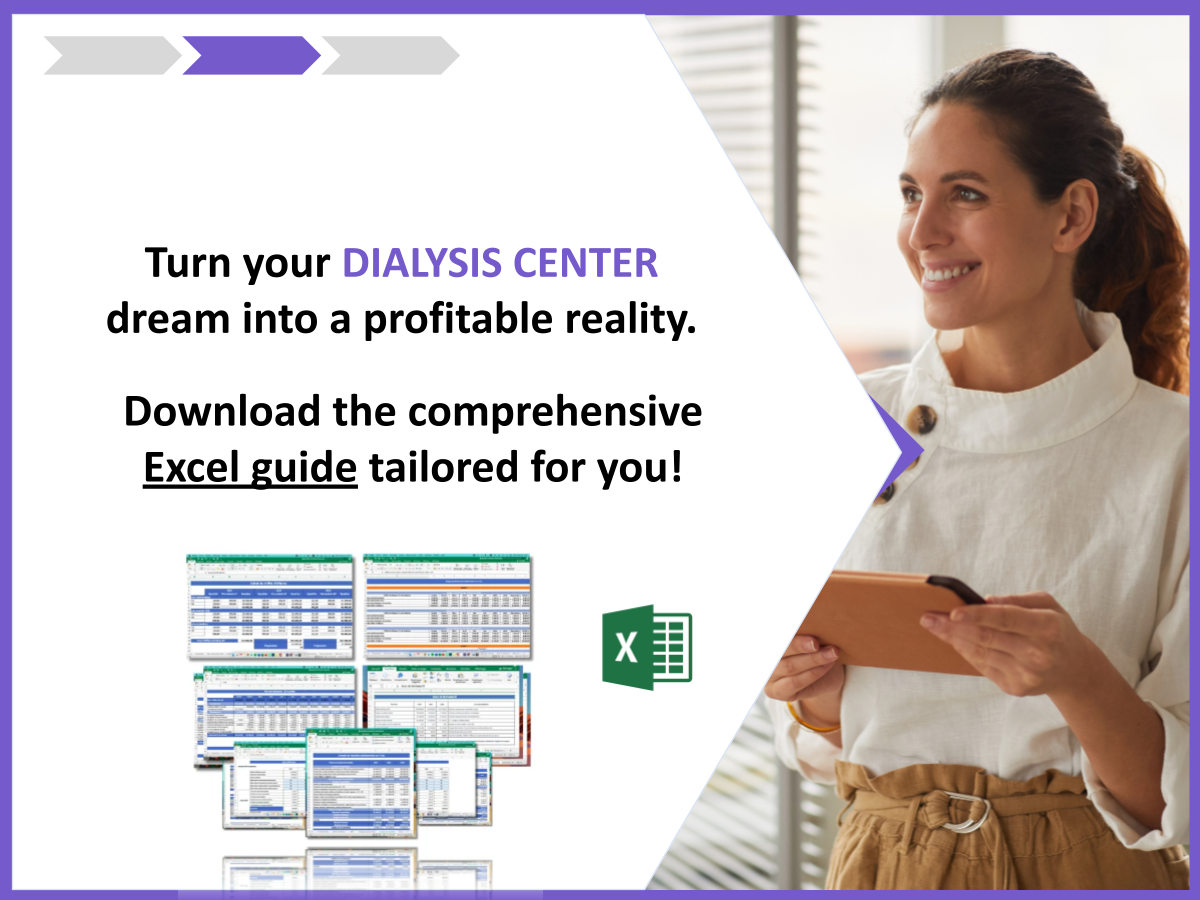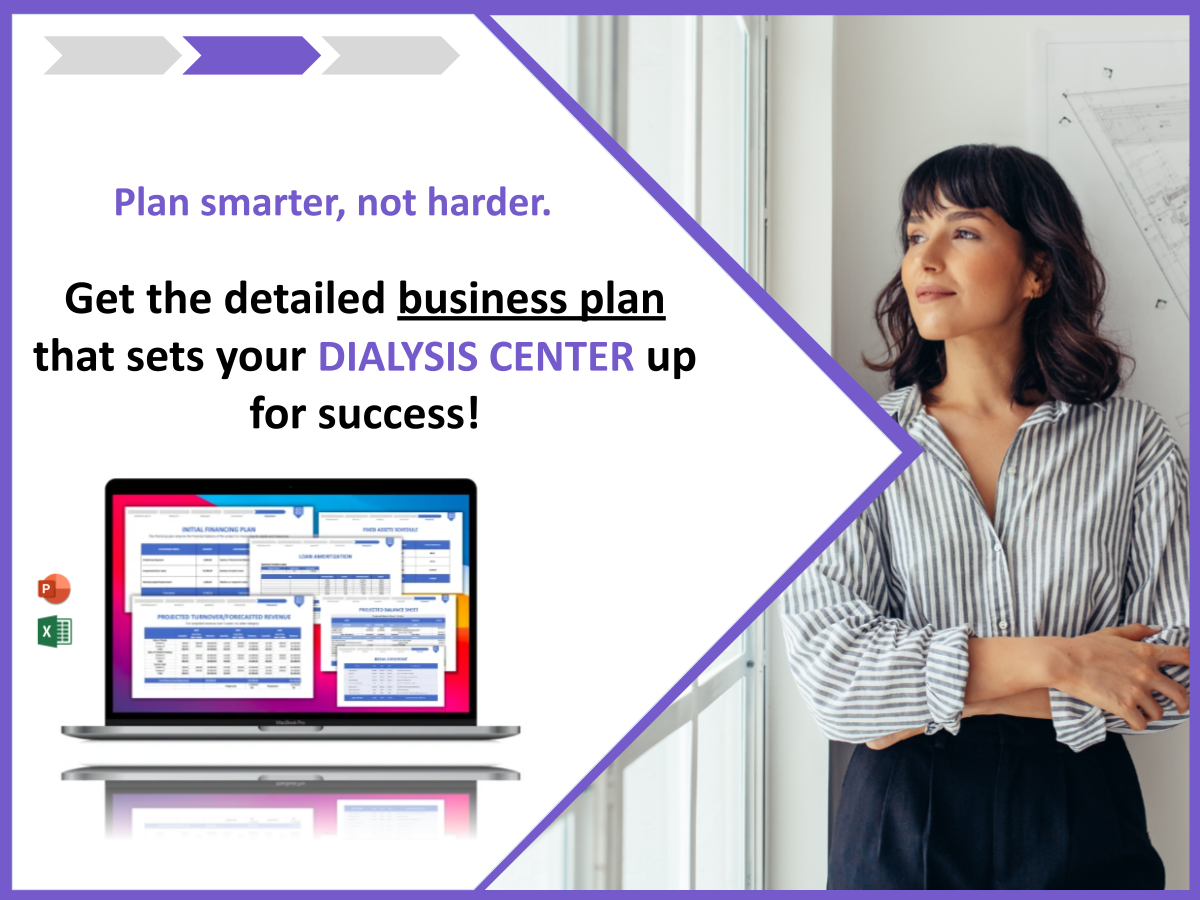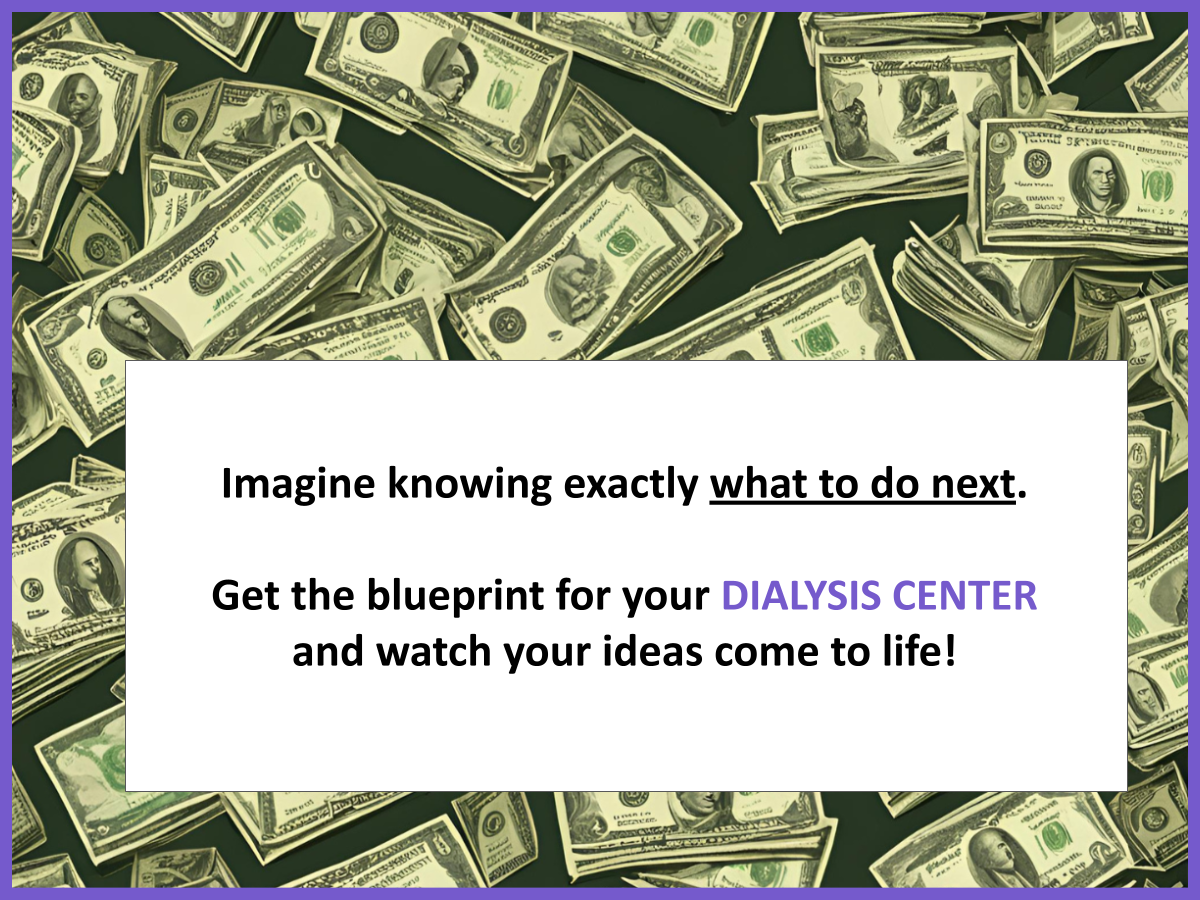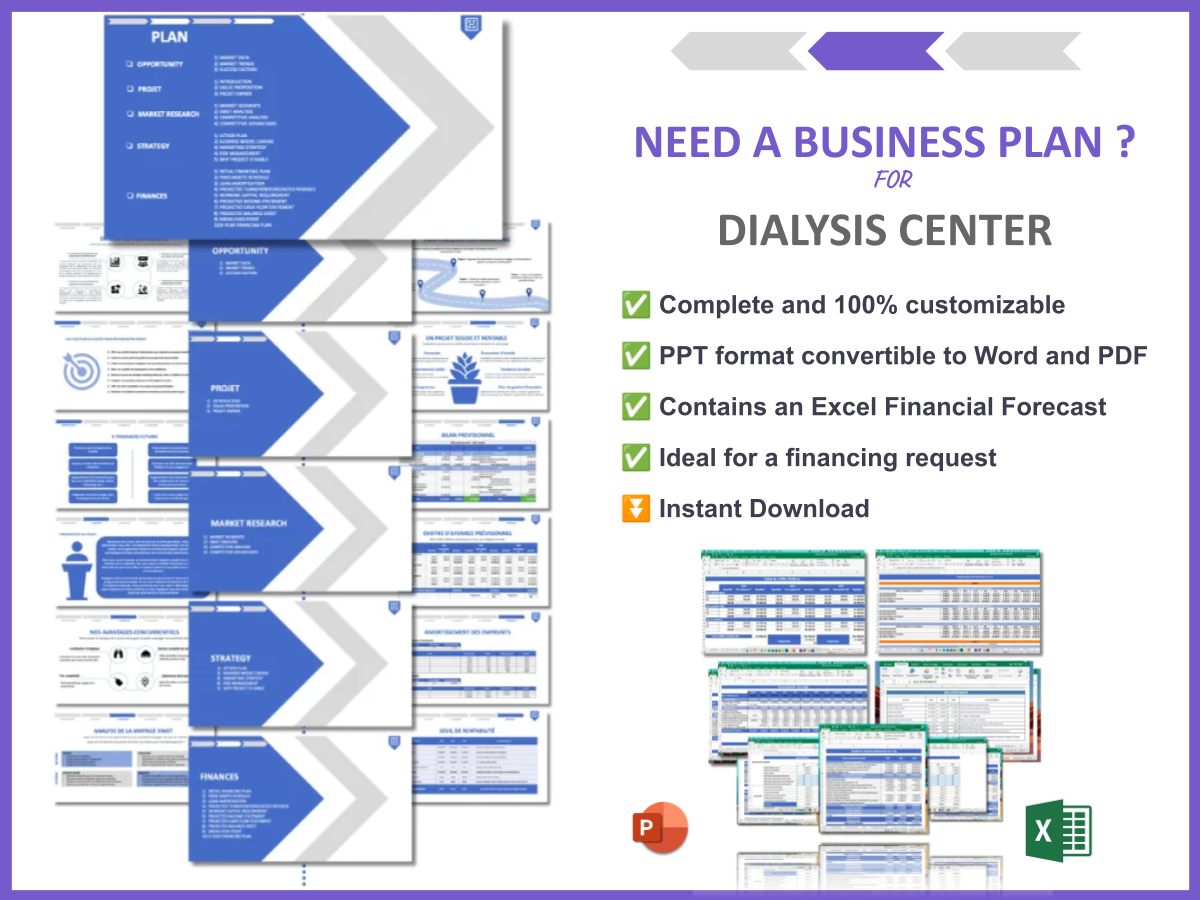Are you thinking about starting a dialysis center? You’re not alone! The demand for dialysis services has been increasing at a staggering rate, with more than 500,000 patients in the U.S. requiring dialysis treatment each year. This compelling statistic highlights the significant opportunity available in this field. In this article, we’ll dive deep into how to start a dialysis center and equip you with essential knowledge and actionable steps.
A dialysis center is a healthcare facility that provides dialysis treatment to patients with kidney failure. These centers are crucial for improving the quality of life for individuals who rely on dialysis for survival. In this guide, we will cover:
- Developing your business idea and understanding the market
- Creating a comprehensive business plan
- Securing funding and navigating legal requirements
- Establishing your brand identity and marketing strategies
- Setting up operations and assembling a skilled team
- Ensuring compliance and maintaining quality standards
1. Define Your Vision and Mission for a Dialysis Center
Before diving into the logistics, you need to clarify your vision and mission for the dialysis center. What do you aim to achieve? What values will guide your operations? This foundational step will help shape every decision you make.
Consider conducting a brainstorming session or a SWOT analysis to outline your center’s strengths, weaknesses, opportunities, and threats. Here’s a quick guide:
- Strengths: Identify what you do well. Do you have experience in healthcare?
- Weaknesses: Acknowledge areas that may need improvement. Are there skills you lack?
- Opportunities: Look for market gaps. Is there a growing need for dialysis services in your area?
- Threats: Recognize external challenges. What are your competitors doing?
This exercise will not only help you define your vision but also prepare you for potential challenges.
2. Research the Market and Understand Your Competition for a Dialysis Center
Understanding the competitive landscape is vital when learning how to start a dialysis center. Identify existing centers in your area and analyze their services, pricing, and customer reviews. This information is invaluable and can help you carve out your niche.
| Competitor | Services Offered | Strengths |
|---|---|---|
| ABC Dialysis Center | In-center dialysis, home dialysis training | Strong patient reviews, experienced staff |
| XYZ Kidney Care | In-center dialysis, nutritional counseling | Comprehensive patient support |
Use this information to differentiate your services and find gaps in the market that you can fill. For example, if competitors lack certain treatment options or patient support services, consider incorporating those into your offerings. You can also look into specialized care, such as pediatric dialysis or home dialysis training, to attract a broader patient base.
Furthermore, consider conducting surveys or focus groups with potential patients to gather insights on what they value most in a dialysis center. This direct feedback can be a game-changer in shaping your services and marketing strategies.
3. Choose a Name for Your Dialysis Center
Choosing the right name is crucial for your dialysis center. It should reflect your mission and be easy for patients to remember. A strong name can evoke trust and care, which are vital in the healthcare industry.
When brainstorming names, consider the following:
- Relevance: The name should hint at the services you provide.
- Memorability: Keep it simple and catchy.
- Availability: Check if the name is available as a domain and not already in use by another business.
Once you have a shortlist, test these names with potential patients or stakeholders for feedback. Here’s a quick checklist for evaluating your name:
- Does it convey trust?
- Is it easy to pronounce?
- Does it stand out from competitors?
Gathering feedback can provide insights that you may not have considered and help you choose a name that resonates with your audience.
4. Create a Detailed Business Plan for Your Dialysis Center
A solid business plan is the backbone of your dialysis center. It should outline your objectives, target market, operational plan, and financial projections. A well-thought-out plan not only guides your operations but is also essential for attracting investors and securing funding.
Here’s what to include in your business plan:
- Executive Summary: A brief overview of your business and its mission.
- Market Analysis: Insights into your target audience and competitors.
- Marketing Strategy: How you plan to attract and retain patients.
- Operational Plan: Day-to-day operations, staffing, and facility management.
- Financial Projections: Estimated startup costs, revenue forecasts, and break-even analysis.
I recommend checking out this business plan template for Dialysis Center. It’s super detailed and can save you a ton of time! A good template can help you structure your plan effectively and ensure you cover all necessary aspects.
Additionally, make sure to review and update your business plan regularly. As your dialysis center grows, you’ll want to adjust your strategies based on market changes and operational experiences. This adaptability can significantly influence your long-term success.
5. Decide on the Legal Structure for Your Dialysis Center
Your dialysis center can be structured as a sole proprietorship, partnership, limited liability company (LLC), or corporation. Each legal structure has its pros and cons regarding liability, taxes, and operational flexibility.
Here’s a brief overview of each option:
| Structure | Pros | Cons |
|---|---|---|
| Sole Proprietorship | Easy to set up, full control | Unlimited personal liability |
| Partnership | Shared responsibilities, easy funding | Shared liability, potential conflicts |
| LLC | Limited liability, tax flexibility | More paperwork, costs |
| Corporation | Limited liability, easier to raise capital | Complex structure, double taxation |
Consult with a legal expert to choose the best option that aligns with your goals. The right structure can protect your personal assets and provide tax advantages. Once you’ve made your decision, you’ll need to file the appropriate paperwork with your state.
6. Secure Funding and Financial Resources for Your Dialysis Center
Starting a dialysis center requires significant capital investment. Funding can come from various sources, including personal savings, bank loans, investors, or grants. It’s crucial to identify the best funding strategy for your business model.
Here are some options to consider:
- Bank Loans: Traditional financing that requires a solid business plan and good credit history.
- Investors: Seek individuals or organizations willing to invest in your business in exchange for equity.
- Grants: Research local, state, and federal grant opportunities specific to healthcare facilities.
It’s also a good idea to create a detailed budget to track your initial expenses, which may include:
- Facility Costs: Rent, renovations, and utilities.
- Equipment Costs: Dialysis machines, furniture, and medical supplies.
- Staffing Costs: Salaries, training, and benefits.
By having a clear understanding of your financial needs and potential sources of funding, you can better position your dialysis center for success. Remember, thorough financial planning can help you avoid unexpected challenges down the road.
7. Register Your Business to Make Your Dialysis Center Official
Once your funding is secured and your business plan is in place, it’s time to register your dialysis center with the appropriate government authorities. This step is crucial for legal recognition and ensures that you can operate without any legal issues.
The registration process generally involves the following steps:
- Choose Your Business Name: Ensure it’s unique and not already in use.
- File the Necessary Paperwork: Submit your registration forms to the appropriate state or local agency.
- Pay Registration Fees: Be prepared to pay any associated fees for registration.
After registering your business, you’ll receive an official certificate, which is essential for opening your dialysis center and establishing credibility with patients and partners. Make sure to keep all documentation organized and accessible.
8. Obtain Necessary Tax Identification Numbers, Licenses, and Permits for Your Dialysis Center
Operating a dialysis center requires obtaining various licenses and permits to comply with local, state, and federal regulations. This step is crucial to ensure that your facility meets health and safety standards.
Here’s a checklist of what you may need:
- Tax Identification Number (TIN): Required for tax purposes.
- Business License: A general license to operate your facility.
- Healthcare Facility License: Specific to healthcare providers and required by your state.
- Medicare Certification: Essential if you plan to accept Medicare patients.
- State Health Department Permits: Ensure compliance with health regulations.
It’s advisable to consult with a healthcare attorney or compliance expert to navigate these requirements effectively. Keeping your licenses and permits up to date is crucial to avoid penalties and ensure smooth operations at your dialysis center.
9. Apply for Business Insurance Coverage for Your Dialysis Center
Insurance is a must for protecting your dialysis center against potential risks and liabilities. Given the nature of healthcare, having comprehensive coverage can save you from significant financial losses.
Here are some types of insurance you should consider:
| Type of Insurance | Description |
|---|---|
| General Liability Insurance | Covers third-party claims for bodily injury and property damage. |
| Professional Liability Insurance | Protects against claims of negligence or malpractice. |
| Property Insurance | Covers damage to your facility and equipment. |
| Workers’ Compensation Insurance | Covers employee injuries and illnesses related to their job. |
Before selecting an insurance provider, shop around and compare quotes to find the best coverage for your needs. Consulting with an insurance agent who specializes in healthcare can also help you identify the best policies for your dialysis center.
10. Set Up Your Financial Management Systems for Your Dialysis Center
Implementing a robust financial management system is crucial for the success of your dialysis center. This system will help you manage billing, payroll, and expenses efficiently, ensuring that your operations run smoothly.
Here are some key components to include in your financial management system:
- Accounting Software: Invest in reliable accounting software that can handle invoicing, payroll, and financial reporting.
- Budgeting Tools: Create a detailed budget to monitor expenses and track your financial performance.
- Billing System: Set up a system for patient billing and insurance claims to streamline revenue collection.
Consider hiring a financial manager or accountant with experience in healthcare to ensure compliance with regulations and optimize your financial strategy. This investment can pay off by preventing costly mistakes and improving your dialysis center‘s profitability.
11. Establish Your Brand Identity for Your Dialysis Center
Your brand identity is more than just a logo; it’s how patients perceive your dialysis center. A strong brand can foster trust and loyalty, which are crucial in the healthcare sector.
To create a compelling brand identity, consider the following elements:
- Logo: Design a professional logo that reflects the values of your center.
- Color Scheme: Choose colors that evoke feelings of trust and calm, such as blues and greens.
- Messaging: Develop a clear and consistent message that communicates your mission and the quality of care you provide.
Once you have these elements in place, ensure they are applied consistently across all platforms, including your website, social media, and promotional materials. This cohesive approach will help establish a strong presence in your community.
12. Develop a Professional Website for Your Dialysis Center
A professional website is essential for attracting patients and providing them with information about your dialysis center. Your website should be user-friendly and include the following:
- Services Offered: Clearly outline the dialysis services you provide.
- Team Information: Introduce your staff, highlighting their qualifications and experience.
- Contact Information: Make it easy for patients to reach out with questions or to schedule appointments.
Additionally, consider incorporating a blog section to share valuable content related to kidney health and patient care. This can position your center as a trusted resource in the community.
Make sure your website is optimized for search engines (SEO) to increase visibility. Use keywords like dialysis center and related terms throughout your content to help potential patients find you online.
13. Market and Advertise Your Dialysis Center
Once your dialysis center is ready, it’s time to market your services. Effective marketing strategies are essential for attracting and retaining patients. Here are some approaches to consider:
- Social Media Marketing: Utilize platforms like Facebook and Instagram to reach potential patients and engage with the community.
- Community Outreach: Participate in health fairs, local events, or workshops to raise awareness about your services.
- Referral Programs: Establish relationships with local healthcare providers who can refer patients to your center.
Consider tracking the effectiveness of your marketing campaigns to see what works best for your dialysis center. This data can guide your future strategies and help you allocate resources effectively.
In conclusion, starting a dialysis center is a significant endeavor that requires careful planning, dedication, and a focus on patient care. By following these steps, you can build a successful center that meets the needs of your community while providing essential services to those who rely on dialysis for their health and well-being.
Conclusion
In conclusion, starting a dialysis center is a complex yet rewarding endeavor that requires careful planning, dedication, and a commitment to patient care. By following the steps outlined in this guide, you can build a successful facility that meets the needs of your community and provides essential services to those who rely on dialysis.
As you embark on this journey, consider exploring additional resources that can further enhance your knowledge. For instance, check out our article on how to create a SWOT Analysis for Dialysis Center, which can help you identify strengths and weaknesses in your business strategy. Additionally, our guide on how to start a Dialysis Center Marketing Plan with Examples will provide you with actionable insights to effectively promote your services.
With the right preparation and a focus on quality care, you can make a significant impact in the lives of your patients while building a thriving business.
FAQ
- What is the first step in starting a dialysis center?
The first step is to define your vision and mission for the dialysis center. Understanding your goals will guide all subsequent decisions. - How much does it cost to start a dialysis center?
The costs can vary significantly based on location, size, and services offered, but initial investments can range from hundreds of thousands to millions of dollars. - What are the legal requirements for a dialysis center?
Legal requirements include obtaining necessary licenses, permits, and certifications specific to healthcare facilities, which vary by state. - How do I market my dialysis center?
Marketing can involve social media campaigns, community outreach, and partnerships with local healthcare providers to attract patients. - What type of insurance do I need for a dialysis center?
Essential insurance types include general liability, professional liability, property insurance, and workers’ compensation insurance. - How can I ensure quality care at my dialysis center?
Implementing strict protocols, ongoing staff training, and regular patient feedback can help maintain high-quality care standards. - What equipment is necessary for a dialysis center?
Key equipment includes dialysis machines, water treatment systems, and medical supplies such as needles and tubing. - How do I hire staff for my dialysis center?
Look for qualified healthcare professionals with experience in nephrology and dialysis. Conduct thorough interviews and background checks. - What is the process for obtaining Medicare certification?
You need to apply through the Centers for Medicare & Medicaid Services (CMS) and meet specific requirements for healthcare facilities. - How can I create a business plan for my dialysis center?
A solid business plan should include market analysis, financial projections, operational plans, and marketing strategies. Consider using templates or consulting professionals for guidance.

